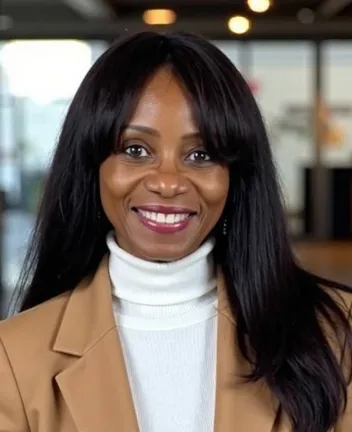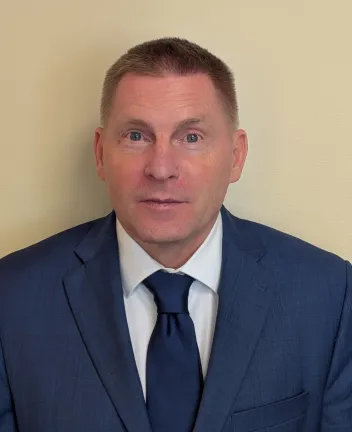Building capacity of the Nigerian judicial sector through multi-agency collaboration
NCSC is at the forefront of advancing justice systems around the world, thanks to our 30+ year reputation for promoting the rule of law in developing and post conflict countries.
We recently expanded our longstanding relationship with the Judiciary of Nigeria by establishing a partnership with the Federal High Court to strengthen the country's capacity to investigate, prosecute, defend, and adjudicate terrorism and atrocity cases.
At the launch of the project, the Chief Justice of Nigeria, Hon. Justice Kudirat M. O. Kekere-Ekun, GCON, noted, "… For over two decades, the NCSC has been a consistent and trusted ally in Nigerian judiciary's reform journey. Working closing with the National Judicial Council, it has contributed significantly to the development of a customized case management system … Today's project builds on this strong foundation, bringing with it renewed energy and sharpened focus on one of the most pressing challenges of our time."
"We are honored to have the opportunity to build on our previous work with the Nigerian judiciary," said NCSC Managing Director JoAnne Richardson. "For more than 20 years, NCSC has worked with the judiciary on various efforts to improve case management and strengthen judicial independence, transparency, and accountability."
Program enhances safeguards for victims, and defendants
Through the "Building the Capacity of the Nigerian Judicial Sector to Prosecute Terrorism and Atrocities Cases" program, which officially launched June 18, our team will use targeted training, stakeholder engagements, and technical assistance to equip Nigerian justice institutions to effectively and ethically manage and resolve complex terrorism and atrocity cases.
To respond to persistent case backlogs, systemic inefficiencies, and human rights concerns, the program's key areas of focus include:
- Evidence-based prosecution in compliance with international best practices
- Effective representation of accused persons
- Enhanced courtroom procedures and case management
- Protection of victims' and defendants' rights throughout the judicial process
INL funds support the effort of NCSC & partners
An initiative funded by the U.S. Department of Bureau of International Narcotics and Law Enforcement Affairs (INL), the program will be implemented by NCSC in collaboration with key justice sector institutions in Nigeria through a two-year year, $1 million grant. NCSC's Nigerian office will be co-located in the Federal High Court in Abuja.
Project partners include:
- Federal High Court
- Ministry of Justice and the Complex Case Group
- National Judicial Institute
- National Human Rights Commission
- Legal Aid Council of Nigeria
- Nigerian Correctional Service
- Nigerian Financial Intelligence Unit
- Nigerian Bar Association
- Civil Society Organizations
"The project is more than a response to current challenges; it is a commitment to justice and accountability. Through facilitating prosecutions on terrorism and atrocity cases, together we can make the United States and Nigeria safer, stronger, and more prosperous," said INL Director Candace Spradley during the June 18 program launch.
Keys to strengthening Nigeria's judicial capacity
Build Nigerian Ministry of Justice's Complex Case Group's capacity to prosecute atrocity cases, aligning with international standards.
Increase the Federal High Court Judges' capacity to adjudicate terrorism, atrocities, and related cases such as terrorism financing, aligning with international standards.
Ensure the Defense Counsel has the requisite knowledge and skills to defend persons charged with committing atrocities.
Enhance the ability of officers of the National Human Rights Commission to promote & protect human rights and investigate allegations of human rights violations.
Strengthen collaboration among different criminal justice actors involved in terrorism and atrocities cases to prosecute terrorism, atrocities, and related cases.
Our experts
Explore more
Building a digital pathway: Connecticut’s remote CDL infraction docket
Discover how Connecticut's Judicial Branch has implemented a groundbreaking, end‑to‑end electronic process that takes a CDL infraction from roadside issuance all the way to a remote hearing — eliminating paper almost entirely and dramatically improving efficiency for the courts and the public.
Effectively managing guardianships & conservatorships
Learn about effective monitoring, reporting & response, along with how to find the right fit to ensure the least restrictive avenue is used to protect an incapacitated individual's personal and/or property interests.
Putting consumer debt reforms into practice
Our debt collection reform implementation toolkit creates better access for all parties and increases procedural fairness.




